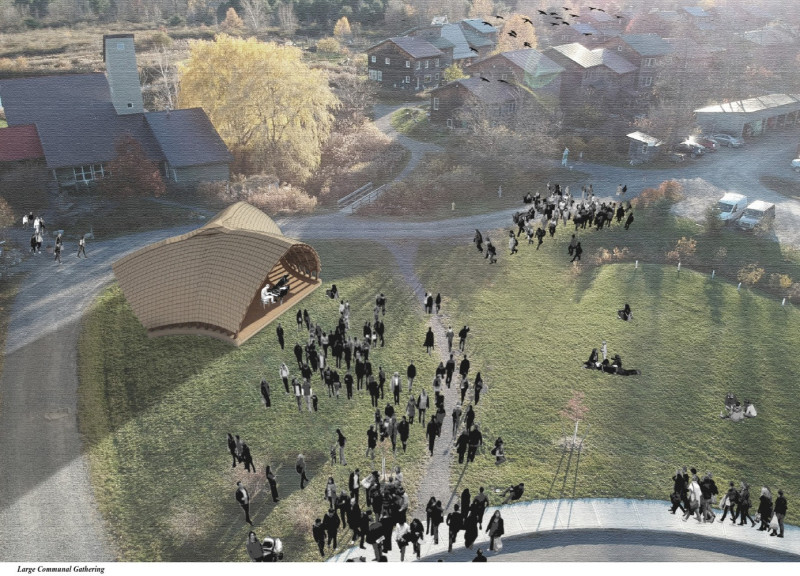5 key facts about this project
The *Robotically Crafted* pavilion is located in Ithaca EcoVillage, Ithaca, NY, designed as a gathering space for the community. It combines traditional building methods with modern technology. The goal is to create a welcoming place that encourages people to come together. The project focuses on how robotics and thoughtful design can work hand in hand to enhance social experiences and promote sustainability.
Design Integration
At the core of the design is the use of parametric techniques and traditional wood joinery. This combination allows for precise log joints that are strong and visually attractive. The pavilion takes on an organic shape, which is not only functional but also engaging to the eye. The careful planning ensures that the structure is both sturdy and inviting, drawing people in.
Sustainable Material Use
Sustainability is a key focus for the pavilion. Local hardwood trees that are often considered unwanted due to their irregular shapes are repurposed for construction. Utilizing these trees minimizes waste and supports environmental responsibility. Each part of the tree is put to use, demonstrating a commitment to efficient resource management. This thoughtful approach highlights the importance of using local materials.
Community Involvement
Community involvement is central to the building process. Residents participate in the assembly of the pavilion, which helps create a sense of belonging and ownership. By engaging the community, the construction process becomes a shared experience, building connections among individuals. This hands-on involvement not only empowers residents but also emphasizes the idea that architecture can foster stronger relationships within the community.
The pavilion is designed to host various events and gatherings. Its thoughtful details, such as the unique joinery and flowing lines, create an atmosphere that encourages interaction. Visitors can feel the connection between the structure and the community it serves. This project showcases how architecture can play a vital role in enhancing social ties and promoting sustainability.



















































